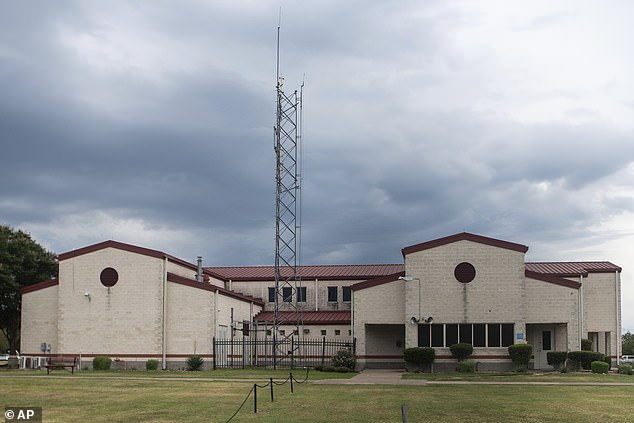The arrival of Ghislaine Maxwell at Federal Prison Camp (FPC) Bryan in Texas has stirred unease among both inmates and staff, highlighting the unusual circumstances surrounding her stay.
Inmates report feeling the impact of alleged preferential treatment, while prison staff are reportedly “walking on eggshells” to avoid potential issues.
Increased Security and Uneasy Atmosphere
Federal prison expert Sam Mangel told the Daily Mail that Maxwell’s transfer disrupted the normally relaxed atmosphere of the minimum-security facility.
“If anything, there’s much more security now than there was before she got there,” Mangel said.
“Not only are the prisoners walking on eggshells, but the staff is also. No one wants to run afoul of the powers that be.”
The camp houses 622 inmates serving time for nonviolent and white-collar offenses.
Maxwell, who is serving a 20-year sentence for recruiting and trafficking minors for Jeffrey Epstein, previously served time at a low-security facility in Tallahassee, Florida.
Maxwell’s Unique Placement Sparks Controversy
Typically, inmates convicted of sexual-related crimes do not serve time at minimum-security “Club Fed”-style facilities.
Maxwell’s transfer to FPC Bryan is seen as highly unusual, raising eyebrows among fellow inmates.
The camp also houses notable figures such as Theranos founder Elizabeth Holmes and former Real Housewives of Salt Lake City star Jennifer Shah, who is serving time for defrauding seniors.
Guards at the Bryan camp normally do not carry weapons, and inmates sleep in open dormitories rather than closed cells.
The arrival of Maxwell, who spent her first three years at FCI Tallahassee hosting yoga and etiquette classes, introduced heightened protocols.
Alleged Preferential Treatment and Lockdowns
Inmates told the Wall Street Journal that they were instructed to deep clean dormitories and avoid any contact or communication about Maxwell with the media. Failure to comply could result in being sent to a stricter facility. Prisoners are reportedly not allowed to mention Maxwell’s name on recorded calls.
Mangel described the situation: “They’re treating Ms. Maxwell like a guest at a hotel rather than an inmate in a federal prison.
There is a sense of entitlement that even in federal prison, people with connections and wealth get treated differently, and that rarely is the case.”
Maxwell has also been allowed private meetings in the prison chapel, with lockdowns imposed on other inmates during these visits.
Since her transfer, additional guards and increased security measures have become standard.
Congressional Scrutiny and Legal Updates
The House Oversight Committee, led by Rep. Robert Garcia, has demanded answers from Attorney General Pam Bondi regarding Maxwell’s transfer.
In a letter, Democrats cited the “suspicious timing” and alleged preferential treatment as reasons to suspect a potential cover-up by the Department of Justice and the Trump Administration.
Meanwhile, Maxwell’s attorney David Oscar Markus defended the move, stating it was for her safety following prior threats in Tallahassee.
Maxwell’s last legal recourse, a potential pardon from former President Donald Trump, remains unlikely after the Supreme Court recently denied her appeal.
She is currently scheduled for release in 2037.
Share on Facebook «||» Share on Twitter «||» Share on Reddit «||» Share on LinkedIn
